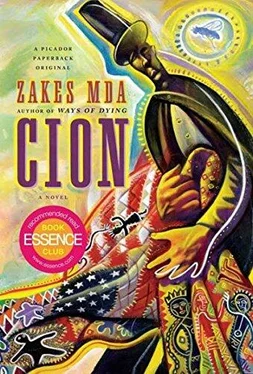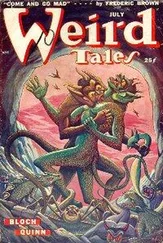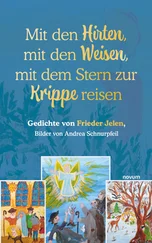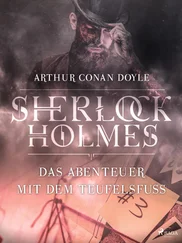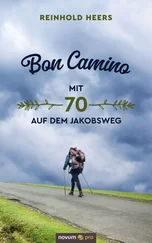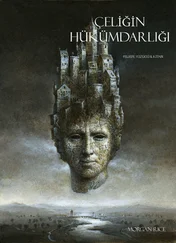“So, you see, this is a very young forest,” he says.
“Though it looks like it’s been here from time immemorial,” I say.
“Oh, some of these trees are even much younger,” he says. “The elm, for instance. It’s thanks to guys like Mahlon Quigley that we have some elms in this forest.”
Mahlon organized a community action group to save the elm after the tree had been devastated by the fungus known as the Dutch elm disease, imported to these parts from Holland via Cleveland in the 1930s. When Mahlon grew up as a young man there were no longer any elms in the region. The elm only made its comeback years later when the man organized his community. Many Dutch elm disease — resistant trees were planted. He fought vigorously when those who wanted shortcuts were bent on replacing the American elm with either the Chinese elm or the less elegant but fast growing silver maple. Yes, in some places the Chinese elm and the silver maple were planted, but Mahlon’s genuine elms also thrived. Even though the man has now retreated into silence the forests will forever sing his praises. At this point Nathan’s voice has become very solemn. It is as though he is talking of a saint.
I am tempted to ask him about the man’s nighttime shenanigans, but I decide against it lest I be accused of spreading malicious gossip about my gracious host.
Nathan parks the car near a small lake and we walk deeper into the woodlands for some distance until we get to an area with poor patches of cultivated land and riverbank bluffs. He is armed with a shotgun. He tells me that he was here scouting with Obed two days ago. He was hoping to find him and his father in this part of the woodlands, unless they are done with their hunt. But we would have seen them on their way back. We each hide behind a tree and Nathan takes out a wing bone caller and begins to suck on it. It produces a clucking sound.
I saw this instrument for the first time yesterday. Mahlon’s was made the previous year from the wing bone of a wild turkey, while Obed was shaping his from the bones of a hen after boiling them to remove the marrow. Mahlon dismissed Obed’s creation. It was not a genuine wing bone caller, he said. Obed proved that his was much better by producing sharp and clear yelping, clucking and kee-kee sounds. Mahlon’s wing bone caller could not compete. Even after reshaping it with a sharp knife and rearranging the two smaller bones inserted in the bigger one and resealing the joints with glue, his sound could not beat Obed’s. I was impressed not so much by these instruments but by the fact that father and son were involved in some activity together and seemed to be enjoying it. Obed did not seem to need anything more than his father’s sparse words to understand him completely.
So here now Nathan is putting the wing bone caller into use. But no turkey appears. He turns to me and says this is not the best time for a hunt. The people who came in good time are Obed and Mahlon, who are likely to have bagged something by now. I tell him that I want to walk back and sit in the car. It is not safe, he says. The blue of my denim and red and white of my shirt are the wrong colors to be wearing on a turkey hunt. Some hunter may mistake me for a turkey and shoot me down. We are just lucky that it is a weekday and there’s not much pressure from other hunters as would have been the case on a weekend. I remind him that I had no intention of coming for any hunt, so he would do well not to blame my attire.
“I ain’t complaining, man,” he says. “I’m just saying.”
Then he blows and sucks on the wing bone caller again.
He takes a breath and says: “The gobble call can be dangerous too, you know. It attracts other hunters and the lousy ones can shoot in your direction thinking you’re a turkey.”
“Then why do you do it?” I ask.
“It’s the only way I’ll attract a turkey at this time,” he says.
While I hide behind my tree, he stands with his back against his tree. He continues his call. Soon two large birds fly up the hill. I didn’t see where they came from. They land a short distance from us. I hide my face in my hands as shots blast.
“I got it,” shouts an excited Nathan. “I got it.”
But now he does not know where it is. Perhaps it took to the air after being shot. It was the right one, he was sure of that. It was a bearded turkey. He has never made a mistake and shot a hen, which, he emphasizes to me — as part of training me as a future hunter — would have been illegal. There is a heavy fine for shooting a hen.
I believe that turkey is gone. Or maybe he missed it. But Nathan is confident that we’ll find it somewhere. After walking for a few yards we see feathers and tracks. It flew only a short distance and landed. But there is no trail of blood.
“It ran this way,” he says. “There’s no point in running after it. No man can run faster than a turkey.”
After more than an hour of following what Nathan claims is a trail we find the turkey. It is dead. Nathan yells and performs a funny jig of victory. I know turkey, but this is not the kind of turkey I expected. It is only half the size of a domestic turkey, and from the trouble it has given us it is sleek and fast and is not dimwitted like the turkeys you would find at a farm.
“I didn’t know turkeys could fly,” I say.
“Wild ones do,” he says as he takes an orange tarpaulin bag from the pocket of his orange jacket, unfolds it and places the bird in it. He tags it.
It is a long way back to where we parked our vehicle. As we trudge along I ask Nathan what his chances are with Orpah and why he is so patient with her.
“I am sure a guy like you can get any girl,” I say.
“She’ll come around one of them days,” he says. “If only Ruth stops interfering.”
“She’s interfering on your side. I thought you’d like that.”
Right now Orpah is playing hard to get in order to annoy Ruth, Nathan believes. Her mother has always prevailed over her about everything. For once Orpah has something on which to defy her. Once the mother stops badgering her about him she will know that they will be good together. After all, they were once lovers and were good together. Granted it was puppy love but it could have developed into something serious had Ruth not interfered, that time against him. It was before he had become the success he is today, and Ruth wanted her daughter to forget about boys and focus on her studies.
“Another problem is Mahlon,” says Nathan.
Now we are beginning to talk.
“So long as Mahlon is there Orpah don’t need nobody but Mahlon,” he moans. “It ain’t no way to raise a daughter.”
I wonder to myself how much more raising the woman needs and why all these people keep on talking of her as if she is a little girl. I find it annoying.
Mahlon entertains her whims, complains Nathan. Did I know that for the past week or so Mahlon has been spending days on end in the woods looking for ghost orchids? I did not know this. Come to think of it, I have not been seeing much of Mahlon on his swing on the porch or in the company of the brooding elders at the Center. But what is wrong with looking for ghost orchids in the woods?
Ghost orchids, it turns out, are Orpah’s new obsession. It all started at the funeral luncheon at Sister Naomi’s house when Brother Michael was paging through the Bible to assure himself that what Obed read was actually contained in there. Orpah, who was sitting next to him, saw a ghost orchid which had been flattened between the pages until it dried out. She was fascinated by the shape, which she said was like that of a frog jumping into a pond. Brother Michael told her that he got that one in the South, and gave it to her. When Brother Michael told her that ghost orchids did not grow on their own but were hosted by other trees, she wondered why she had never seen them before even though she had practically grown up in the woods, and she spent the next day looking for them in the wooded area next to the cemetery. When Mahlon learned of her search he took it upon himself and spent days on end looking for the orchids even deeper in the forest. If only he could find just one it would make his daughter happy. The very Mahlon who knew so much about trees and had saved the elm now spends his time walking among the white ash trees, the walnuts, the beech, the birch and of course the sycamore, looking for the ghost orchids he has never seen growing in this region in his lifetime.
Читать дальше
